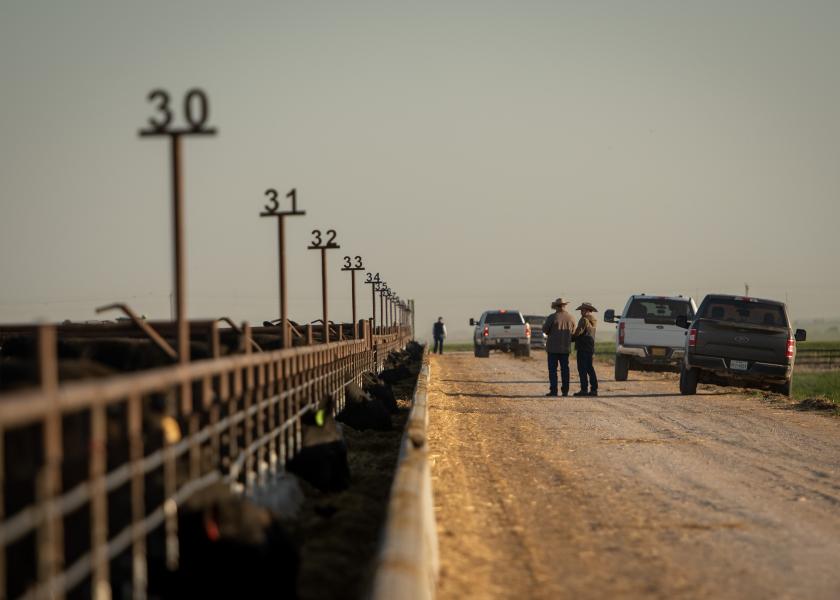Gardiner Angus Ranch Bulls Average $9,402

Gardiner Angus Ranch’s 42nd Spring Sale saw a total of 898 head sell to 275 buyers from 30 states, Canada and Mexico.
Held Saturday, April 3 at the Gardiner Ranch, Ashland, Kan., a total of 352 bulls sold for an average of $9,402.
High selling bull was Lot 1, GAR Transcendent, sold to Cable Corral Genetics, Amarillo, Tex., for $290,000 to become partners with GAR and Select Sires. The bull is the highest marbling bull in Angus history to date. Lot 17, GAR Quantum 5519, was the second high-selling bull purchased by ST Genetics, Navasota, Texas, for $200,000.
A total of 214 20-month-old bulls sold for $2.074 million to average $9,695 per head. A total of 138 16-18-month-old bulls sold for $1.234 million at an average of $8,947 per head.
The top end of the bull offering was strongly supported throughout the day as 38 bulls sold in a range from $10,000 to $14,500. Forty-one percent of the bulls sold from $7,000 to $9,500. One hundred twenty-six bulls (36%) sold in a range from $5,000 to $6,500.
Three hundred one lots of registered Angus females sold for $2.409 million to average $8,004 per lot. Among the females were 130 bred heifers that averaged $5,954 per head; 53 bred cows that averaged $4,788 per head; 31 3-N-1 pairs that averaged $8,806; and 87 donor heifers that averaged $12,741.
The sale also featured 245 commercial females that totaled $565,550 to average $2,308. Among the commercial females 5 bred commercial cows averaged $2,400; 158 bred commercial heifers at $2,451; and 82 load lots at $1,864.
In total, the sale grossed $6,284,300 for an average of $6,999 on the 674 lots. Overall 614 bidders were registered to bid in person, on LiveAuctions.tv, and Superior. Thirty-five percent of the sale was sold online.
For a detailed sale report click here.







